A 2023 report by the National Institute of Alcohol Abuse and Alcoholism revealed that around 7.5 million children in the United States live with a parent with an alcohol abuse disorder. Such environments often lead to symptoms of post-traumatic stress disorder.
The author of today’s story is living proof of these statistics, having dealt with her abusive, alcoholic mother her entire childhood. After moving out and removing herself from the toxicity, the ghosts of her past came back to haunt her after her now homeless mother reached out for help.
She flat-out refused, only for her relatives to paint her as the villain. It made her wonder if she was, indeed, the cruel, heartless daughter she was made out to be.
Alcoholic parents inflict long-term damage on their children

Image credits: francescosgura/Envato (not the actual photo)
A woman had her abusive, alcoholic mother reach out to her, asking to move in

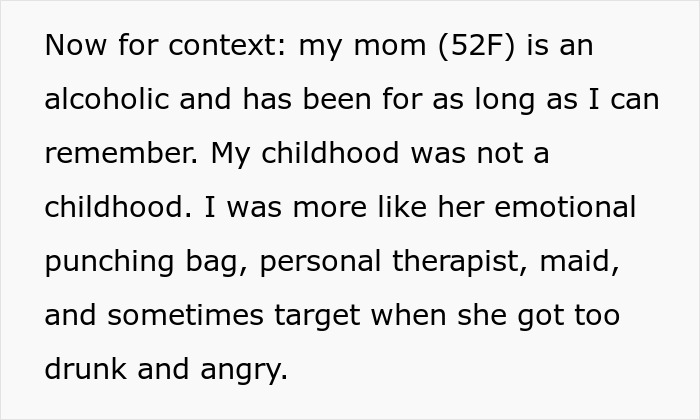
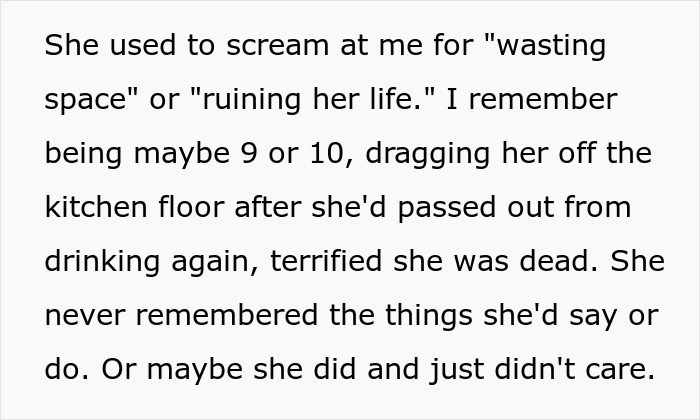
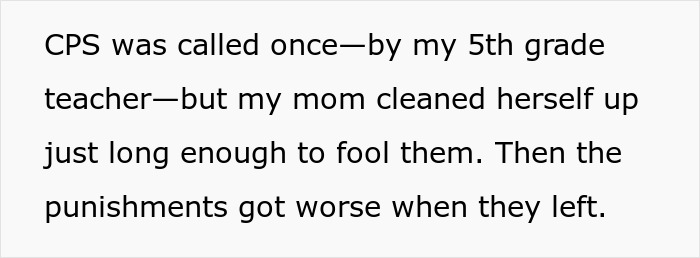
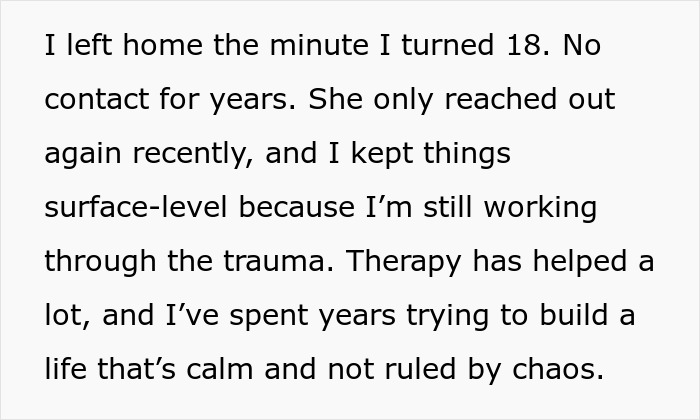
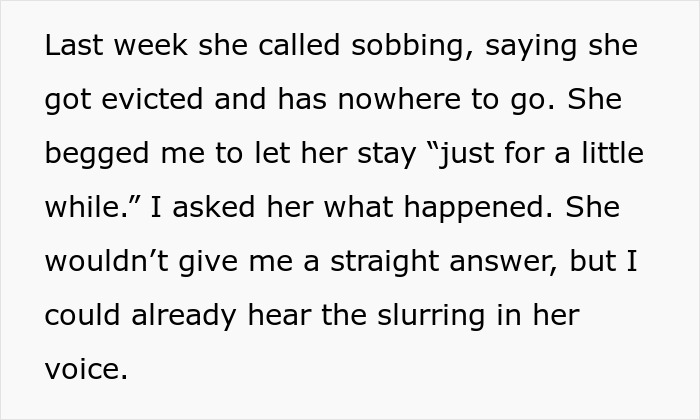

Image credits: stevanovicigor/Envato (not the actual photo)
She refused but came off as the ungrateful and “selfish” daughter

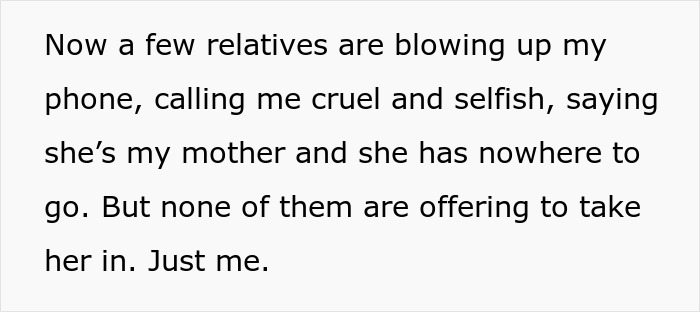
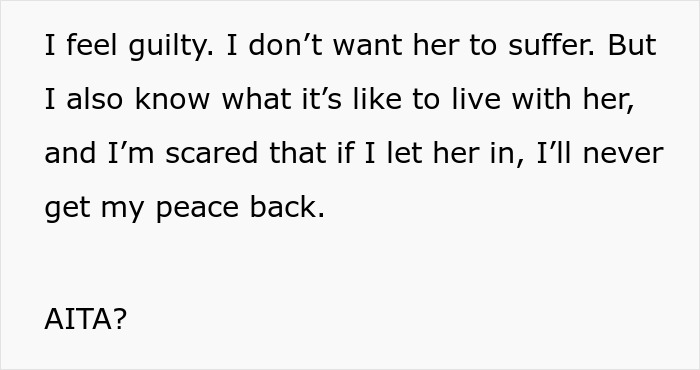
Image credits: practice40hrsz
Children never outgrow the effects of having an alcoholic parent, even when they leave home

Image credits: Lance Reis/Unsplash (not the actual photo)
The author admitted that she has yet to get through the traumatic experience of growing up with her mother. According to psychotherapist Dr. Sharon Martin, LCSW, the full impact may not manifest until years later.
In her article for PsychCentral, Dr. Martin explains that the personality traits and relationship patterns that one may have developed to cope may affect a person’s professional life, romantic relationships, and even parenting methods.
“They show up as anxiety, depression, substance abuse, stress, anger, and relationship problems,” she wrote.
Dr. Martin describes alcoholic homes as “chaotic” and “unpredictable,” adding that everyone typically walks on eggshells around the abuser. And because of the erratic behaviors, “you never know who would be there or what mood they’d be in.”
“There may have been a lot of overt tension and conflict,” Dr. Martin stated. “Or you might have sensed all the tension just below the surface like a volcano waiting to erupt.”
According to Dr. Martin, children of alcoholics may still have the urge to rescue their parents. This may explain why the author feels a sense of guilt about refusing to help her mother.
Limiting interactions is the best way to deal with an abusive parent

Image credits: David Ross/Unsplash (not the actual photo)
Based on the author’s account, her mother hasn’t changed her abusive ways, gaslighting her when she refused to take her in. Worse, other family members also piled on her.
According to author and psychotherapist Kaytee Gillis, LCSW, limiting interactions would be the way to go. As she explained in an article for Choosing Therapy, the distance decreases the chances of their abusive behavior. Gillis even encourages going no-contact if the situation calls for it.
Gillis also emphasizes that the abused person shouldn’t allow themselves to be burdened by guilt or self-doubt.
“You were powerless to stop or change any abuse you experienced as a child,” she wrote, adding that it is important to remind yourself that it wasn’t your fault and that you are taking the necessary steps to move forward.
The author shouldn’t feel guilty about refusing to take her mother in, regardless of what the rest of her family says. It’s within her right to prioritize herself and move far away from the trauma and every reminder of it.
Most commenters sided with the author

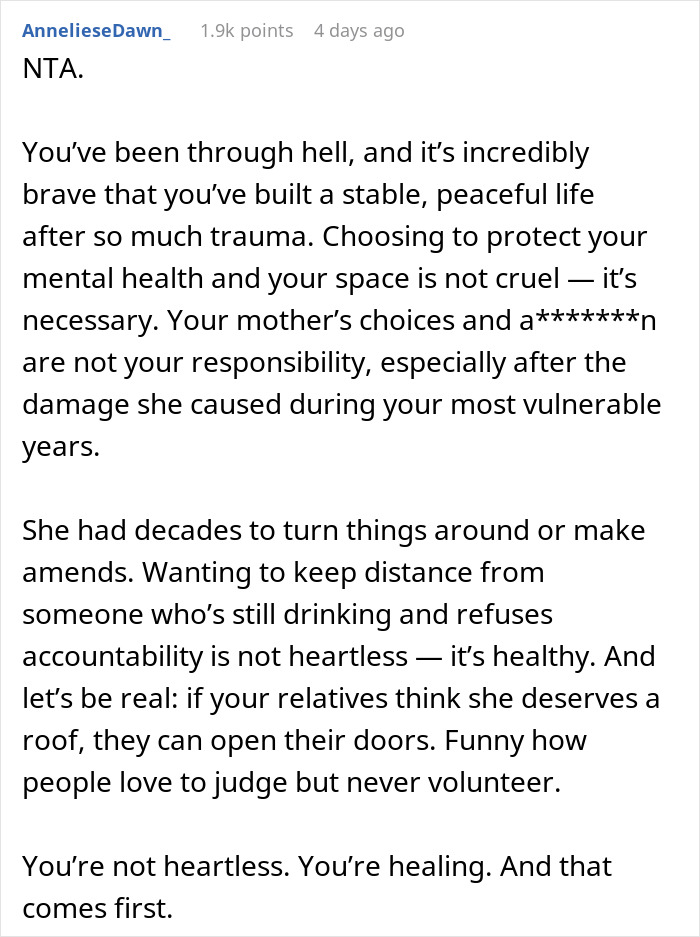

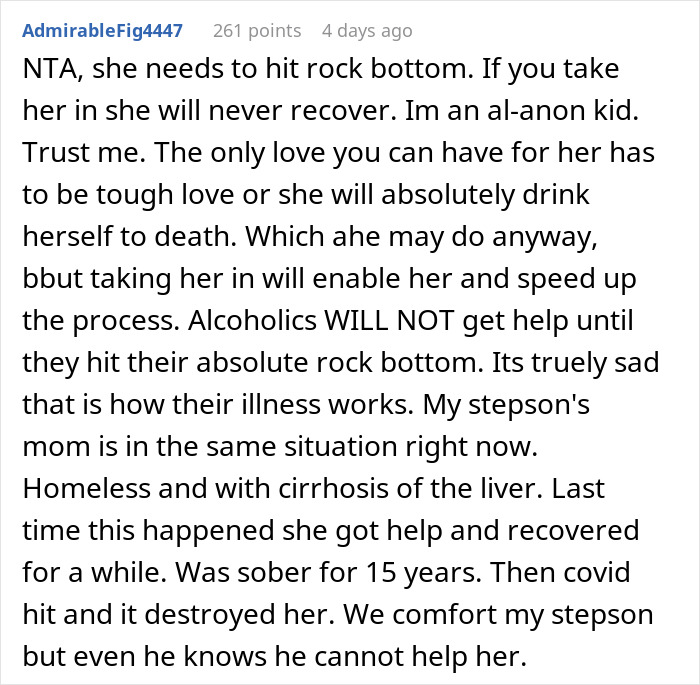

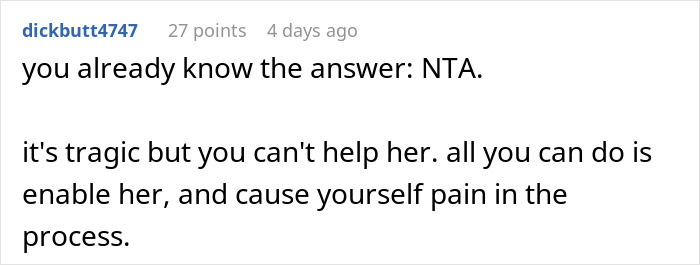
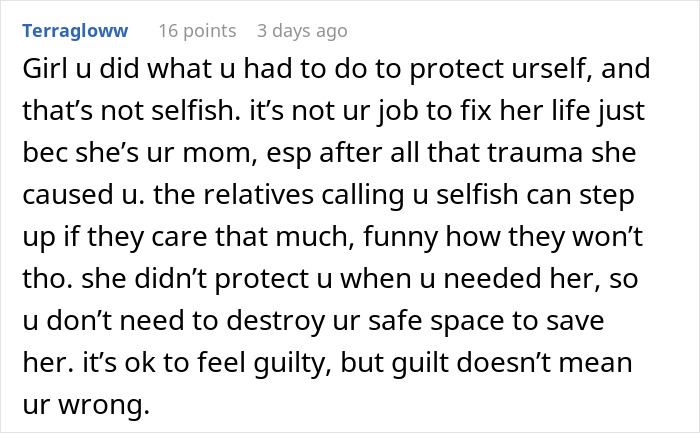
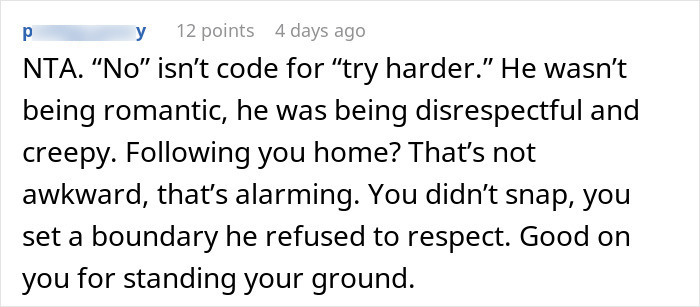

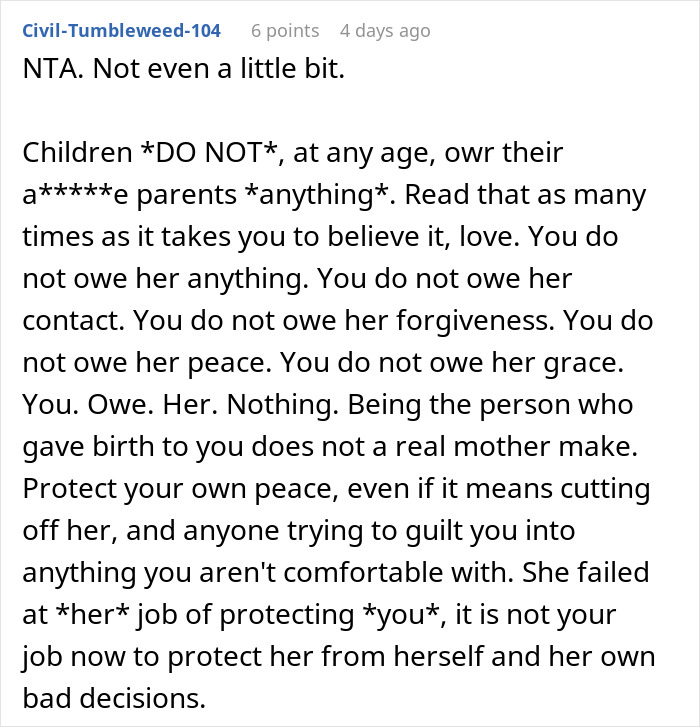
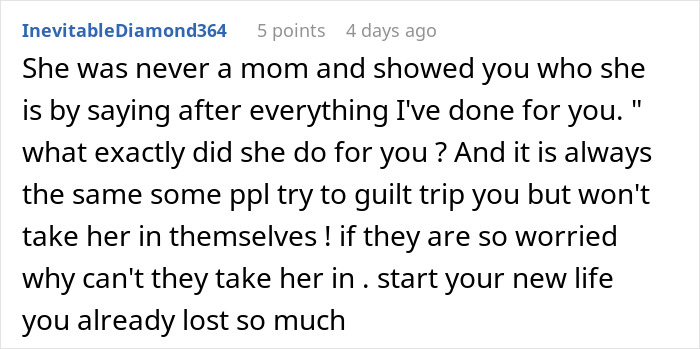
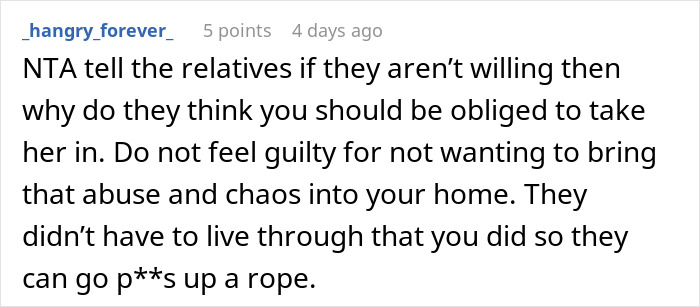

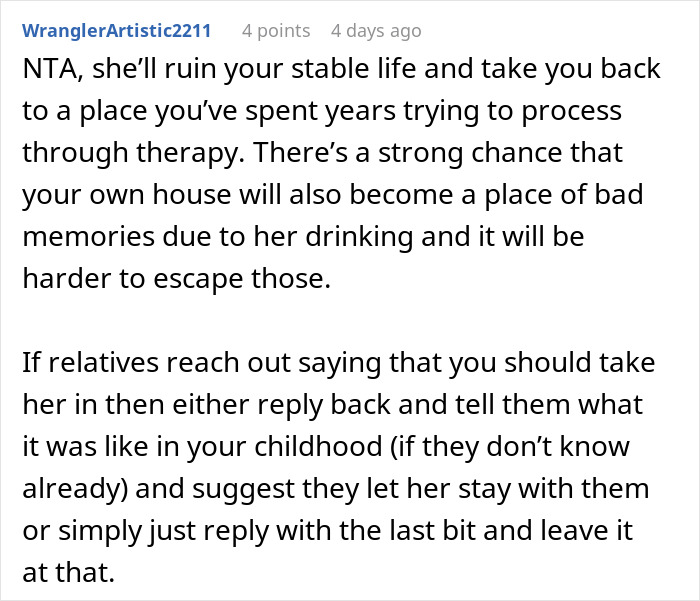
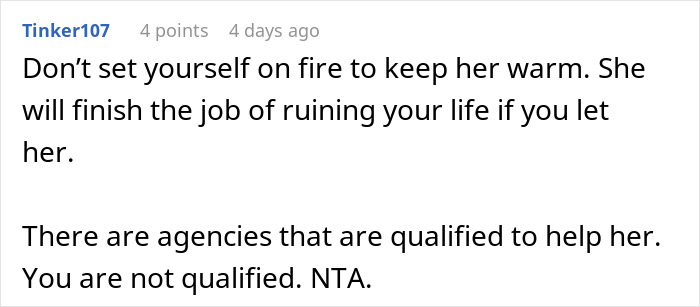


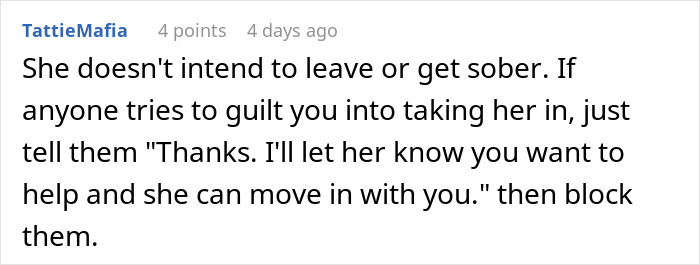
Others shared similar experiences
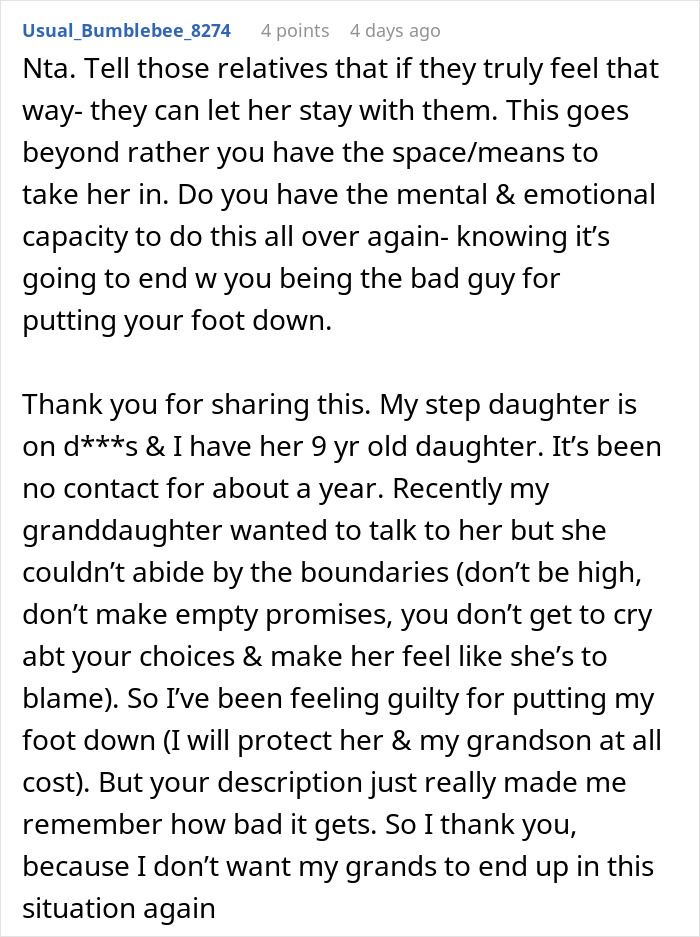

However, some believe she “should have let bygones be bygones”



from Bored Panda https://ift.tt/swCT8YV
via IFTTT source site : boredpanda